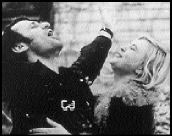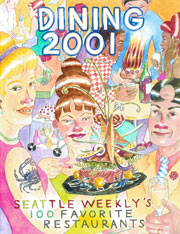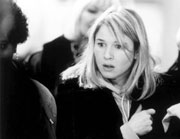DESPITE HER EMBRACE by the most powerful woman in the publishing industry, Alice Hoffman isn’t just another Oprah author. Nor does she fit neatly into the categories reserved for the Danielle Steels and Toni Morrisons of the book world. Every one of her dozen novels—from Practical Magic to Seventh Heaven to Here on Earth—asserts that the impossible is possible, while also demonstrating the skills of a formidable literary writer.
THE RIVER KING
by Alice Hoffman (G.P. Putnam’s Sons, $23.95)
For Hoffman, the everyday contains extraordinary elements: Inanimate objects react with human emotions, weather rages against circumstance, the elusive happily-ever-after beckons, reality gets tangled up in dreams, and the dead return in various guises. Accordingly, she often adapts fairy-tale motifs that effectively force grown-ups, despite their skepticism of such unrealities, to believe in magic.
The River King takes place in modern-day Haddan, Massachusetts, on the campus of the exclusive boarding school of the same name. Over the last century, thanks to the river’s periodic flooding, the school has become a place where “frogs can be found in the plumbing” and “linens and clothes stored in closets have a distinctly weedy odor, as if each article had been washed in river water and never thoroughly dried.”
Even before the novel’s main characters surface, Hoffman recounts the school’s sorrowful history: In the late 19th century, the respected headmaster Dr. Howe married the local beauty Annie in an attempt to repair the rift between town and gown. Instead, their union disintegrated under the weight of his womanizing and the death of their unborn child. Annie, relegated to tending her flower garden, later hung herself in the attic of the girls’ dormitory. New Haddan students sense her fate by the mysteriously strong scent of the campus roses, “as though the flowers were issuing a warning: be careful who you choose to love and who loves you in return.”
With this legacy as a backdrop, freshmen Carlin and Gus seek refuge from the school’s oppressive social order by wandering along the river after curfew. Gus falls for Carlin, but she soon catches the eye of the cruelest senior in Gus’ dorm and leaves him to suffer a series of brutal hazings that result in tragedy. Where are the teachers, you wonder? Betsy is busy falling for a local cop, while her faculty fianc項ric focuses on becoming chair of the history department.
HOFFMAN’S CHARACTERS are preoccupied with love. All of them chase it, wonder what to do with it, and rethink their lives because of it. “Love never arrived politely, knocking on the front door like a kindhearted neighbor, asking to be let in,” Abel the policeman thinks. “Instead, it ambushed a man when he least expected it, when his defenses were down, and even the most obstinate individual . . . had no choice but to surrender when [it] came to call.”
In the rational world, of course, these things wouldn’t happen to such an uncontrollable degree; in Hoffman’s scheme, however, the rational is soon overpowered and overgrown. Between the river, rushing and thick with communicative minnows, and the fencelike brambles that enclose the campus, nature runs amok. Instead of the school nurturing young minds, the lingering scent of Annie’s roses symbolizes the enduring power of the organic over the academic. All that Hoffman requires from her readers is the temporary suspension of disbelief. So we keep reading, as amused as the students and teachers are amazed that they can’t control their own destinies.
Given its high-school setting, Hoffman takes a chance with The River King. At first glance, you can practically envision this as a movie starring Sarah Michelle Gellar. But that would be to underestimate Hoffman, who, from the first sentence, promises two things: 1) the story of a place under the influence of which people listen to their hearts, and 2) that magic exists. And wouldn’t that give Oprah’s Book Club something to talk about.








